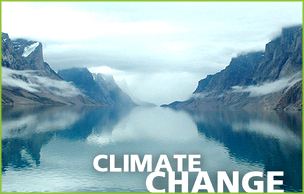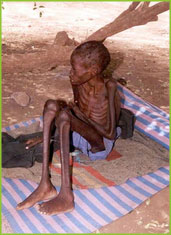Poverty and Climate Change
- Climate Change is happening and will increasingly affect the poor.
- Adaptation is necessary. There is a need to integrate responses to climate change and
- To develop poverty reduction strategies ensuring sustainable development.
Today, over 1 billion people live in extreme poverty on less than US$1 a day. The effects of Climate Change will be felt most by such people. This is because of geographic locations and climatic conditions of developing nations. In some areas where livelihood choices are limited, a decline in crop yield could potentially cause outbreaks of famine. Where a large loss in landmass is expected, migration may be the only answer. All these could lead to millions of people becoming ‘climate refugees.’ |
 |
|||
It is difficult to put a value to the macroeconomic costs caused by Climate Change. What is certain is that climate change will pose a significant threat to impoverished communities and nations. |
||||
“Climate change is a very emotional subject for the Philippines because the issue is viewed not only as causing additional economic burdens, but as a critical factor that would determine its survival as a nation. Many of its people are in coastal areas and at risk from the impacts of extreme climatic events, sea level rise and degradation of marine ecosystems. The effects of climate change on agriculture, forestry and water resources will further encumber a country already reeling from a host of socio-economic and environmental problems.” (Philippines 1999)
Environmental JusticeOur Environmental Justice Programme aims to address the disproportionately high impacts of environmental degradation and pollution on disadvantaged communities. The programme initiates social development whilst targeting Global Warming. |
 |
Global Warming presents the greatest challenge we humans have yet faced. Are we ready to change in dramatic and prolonged ways, in order to offer a workable future to subsequent generations and diverse forms of life? If we are, new technologies and new habits offer some promise, but only if we move quickly and decisively, with a maturity we’ve rarely shown as a society or a species. It’s our coming-of-age moment, and there are no certainties or guarantees. There is only a window of possibility, which is closing fast. Nevertheless, it is still ajar enough to let in some hope
